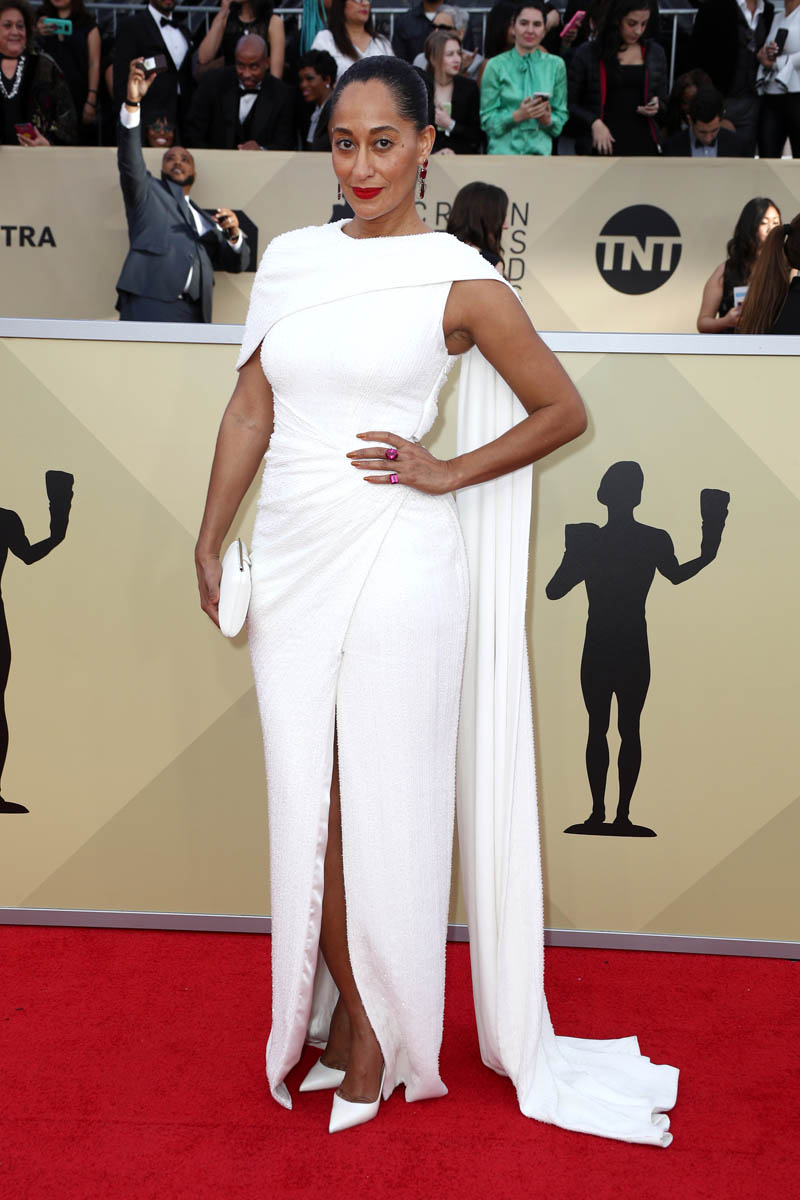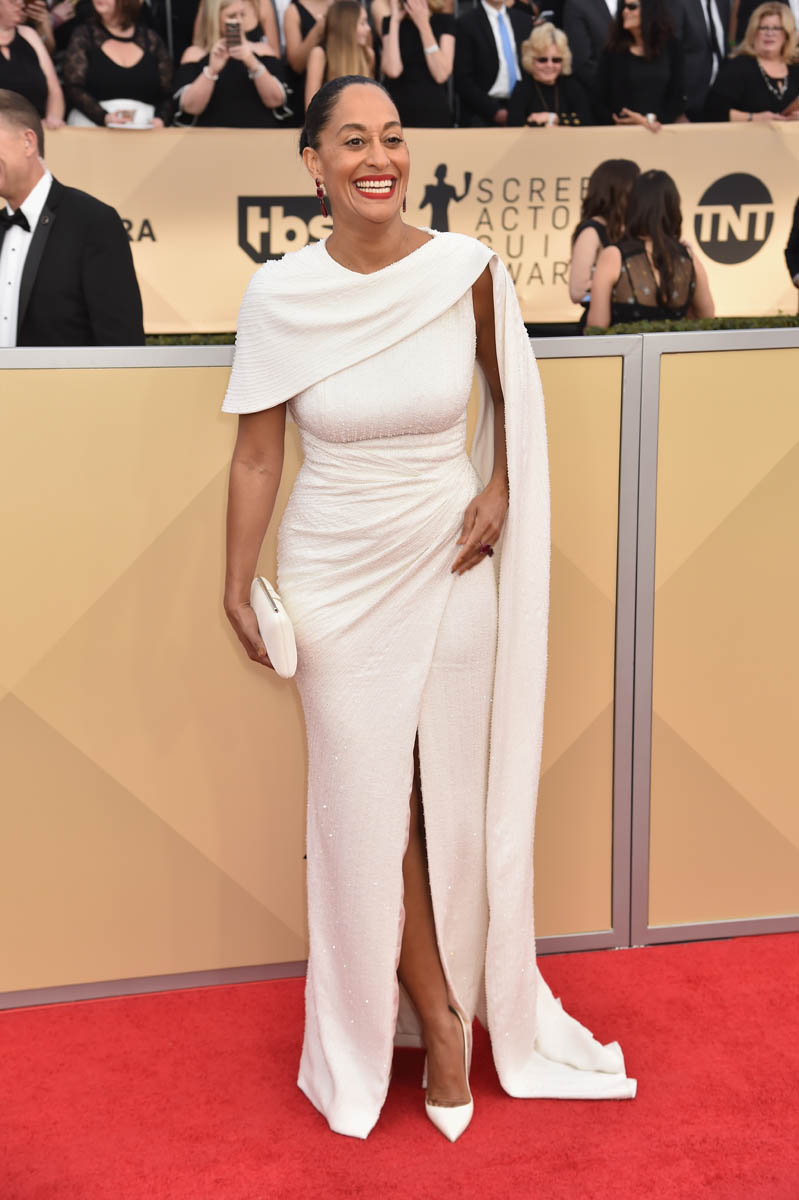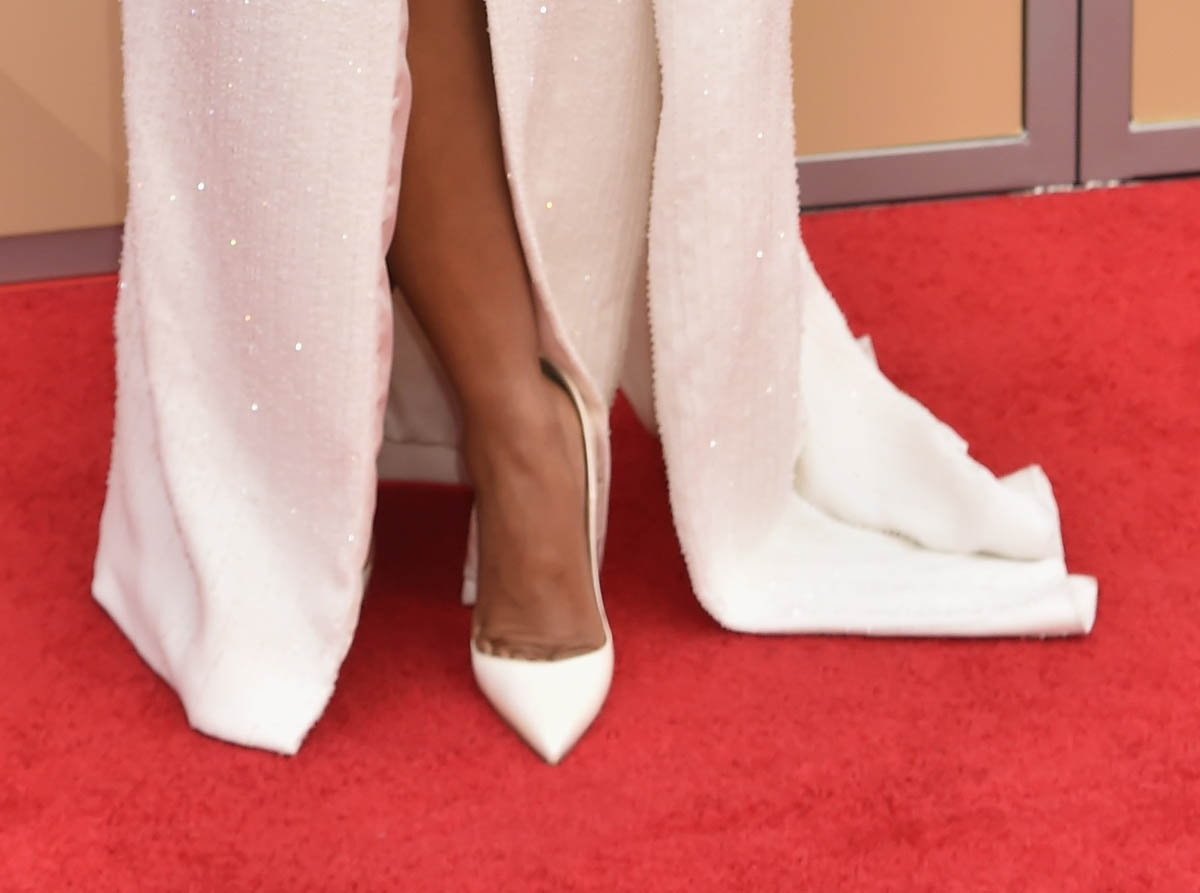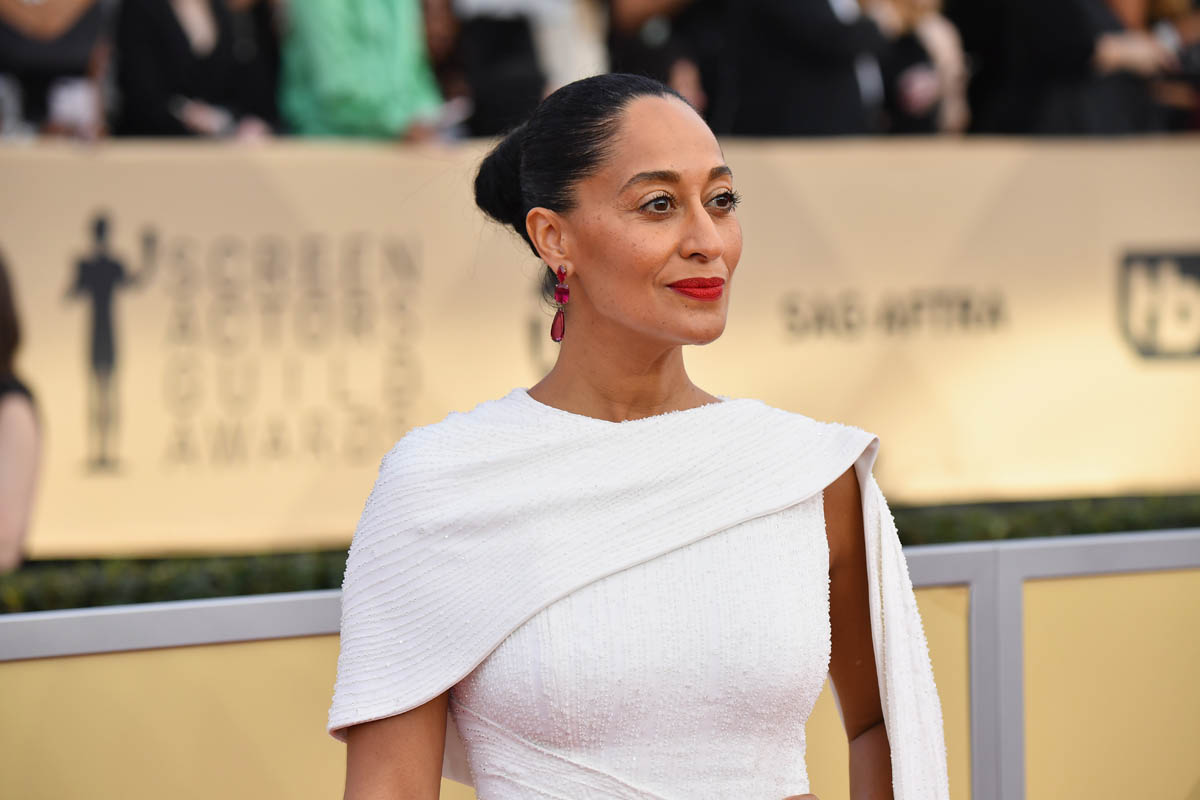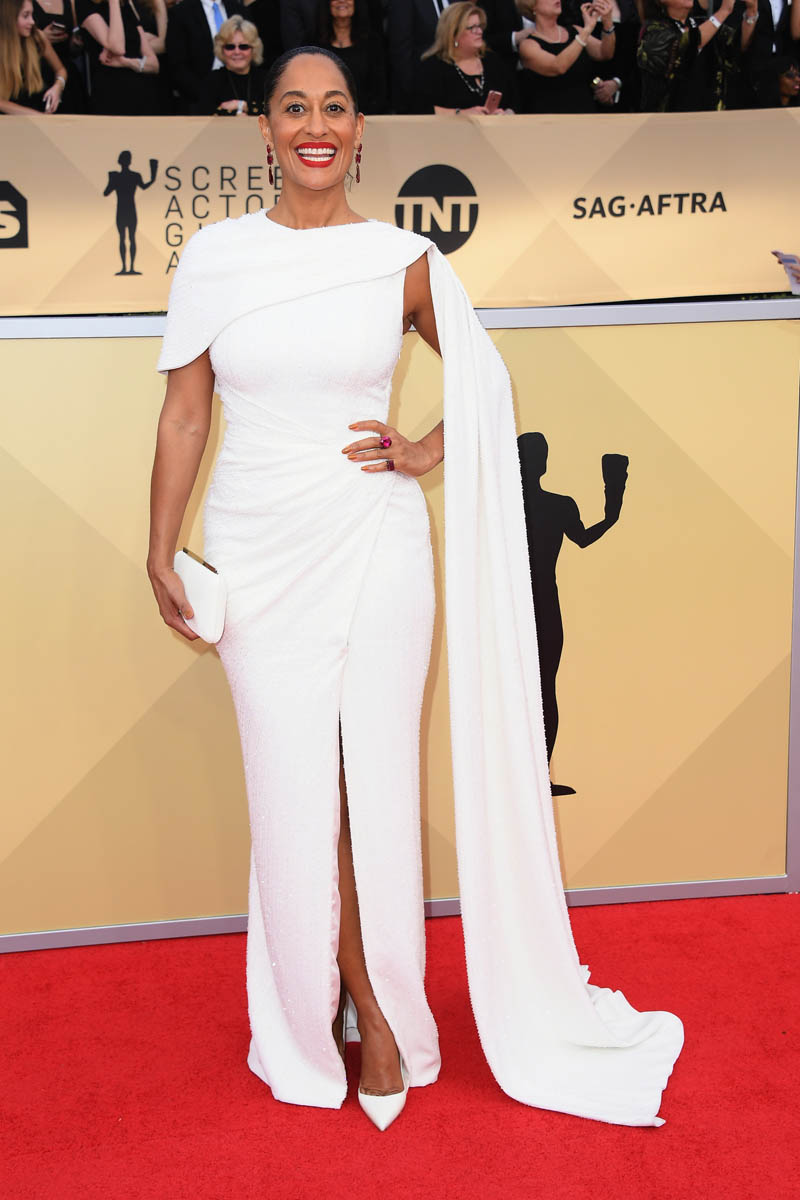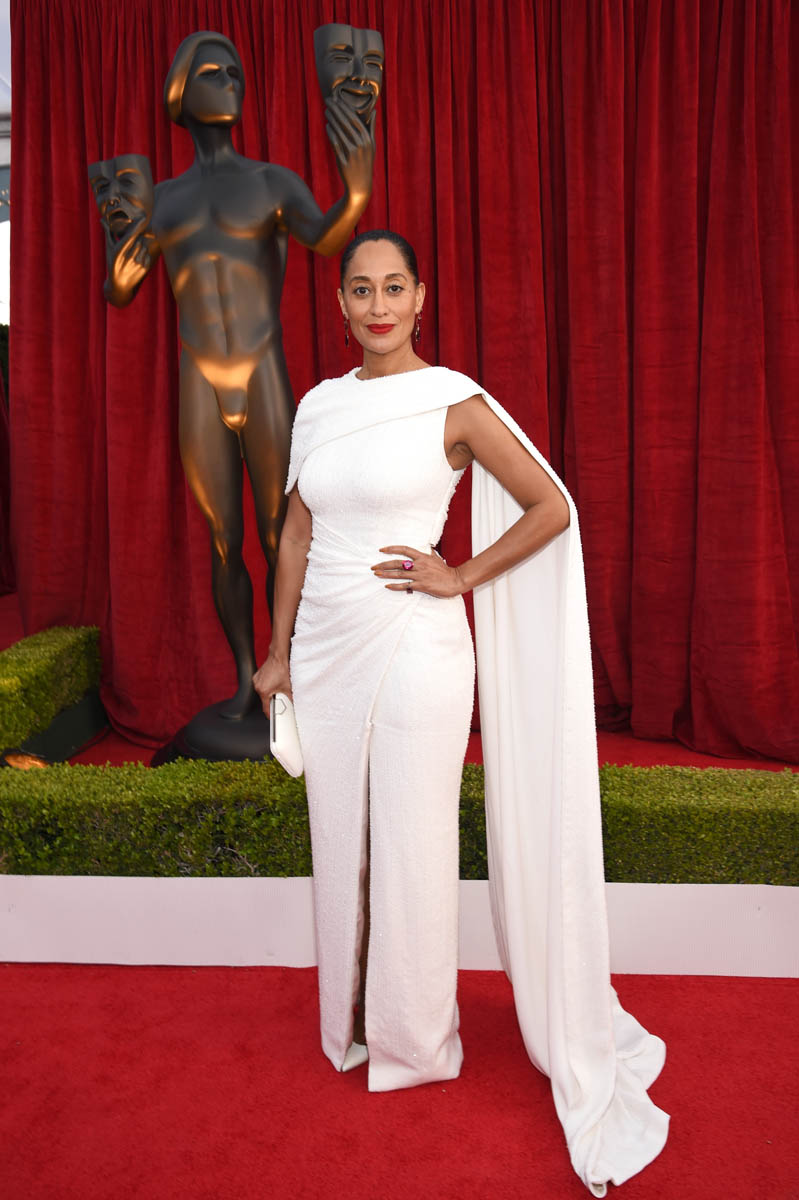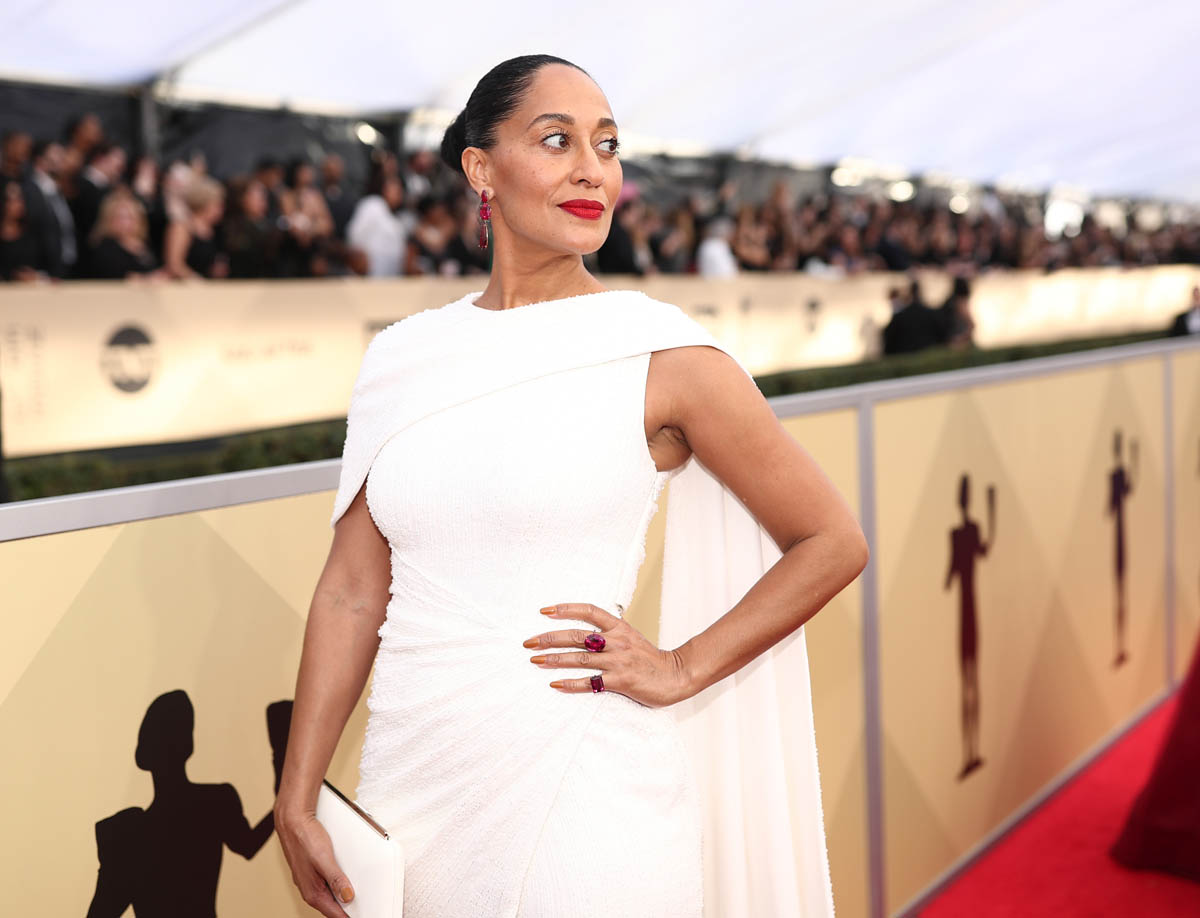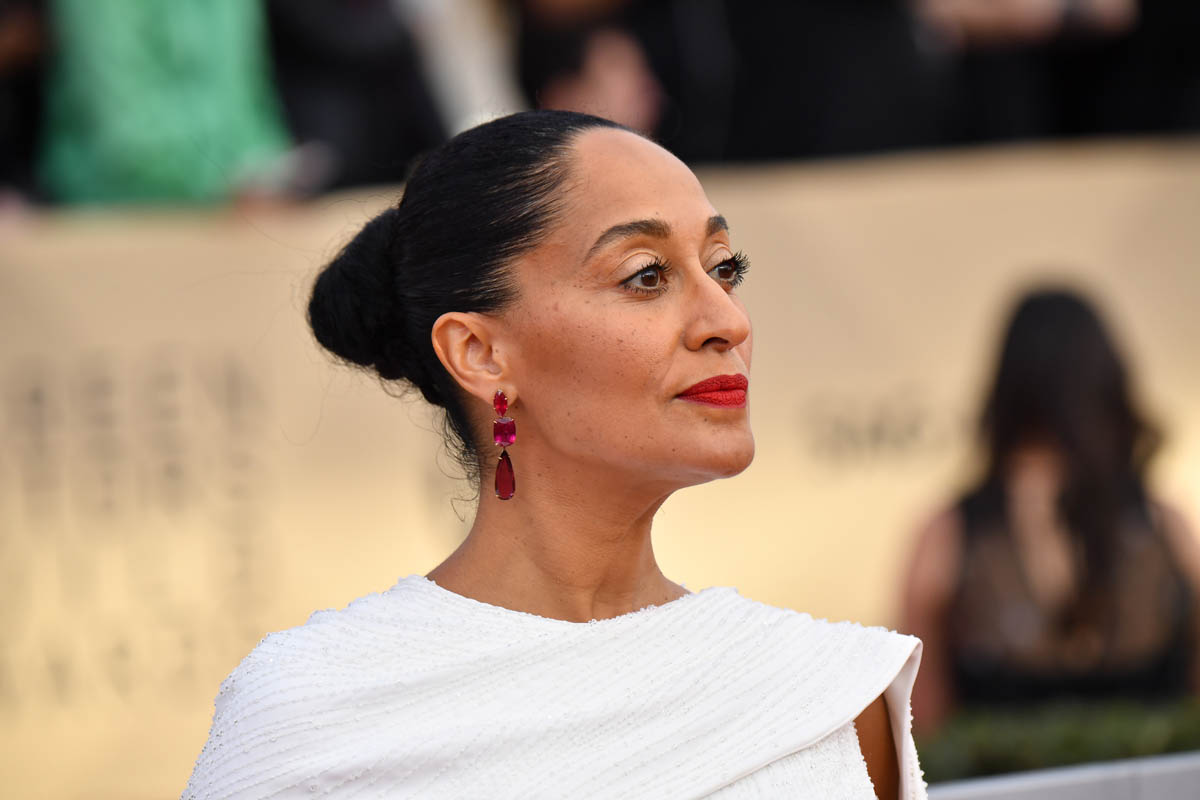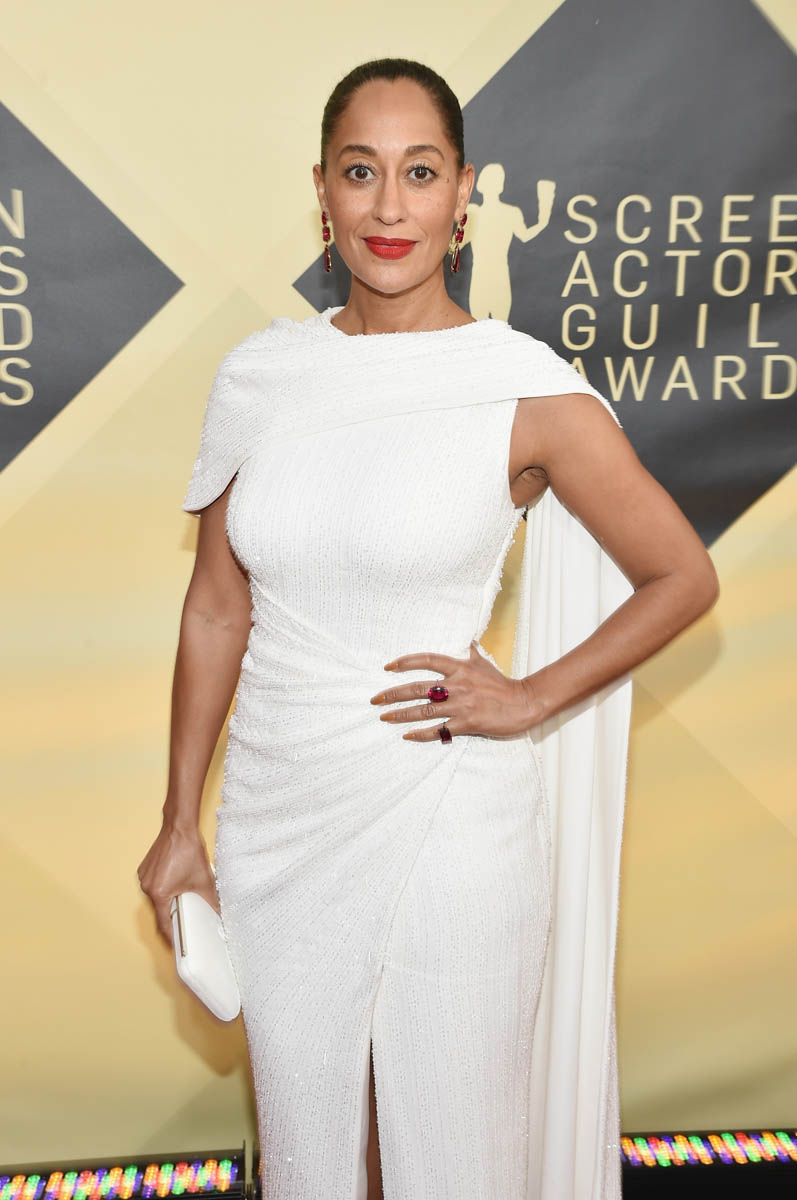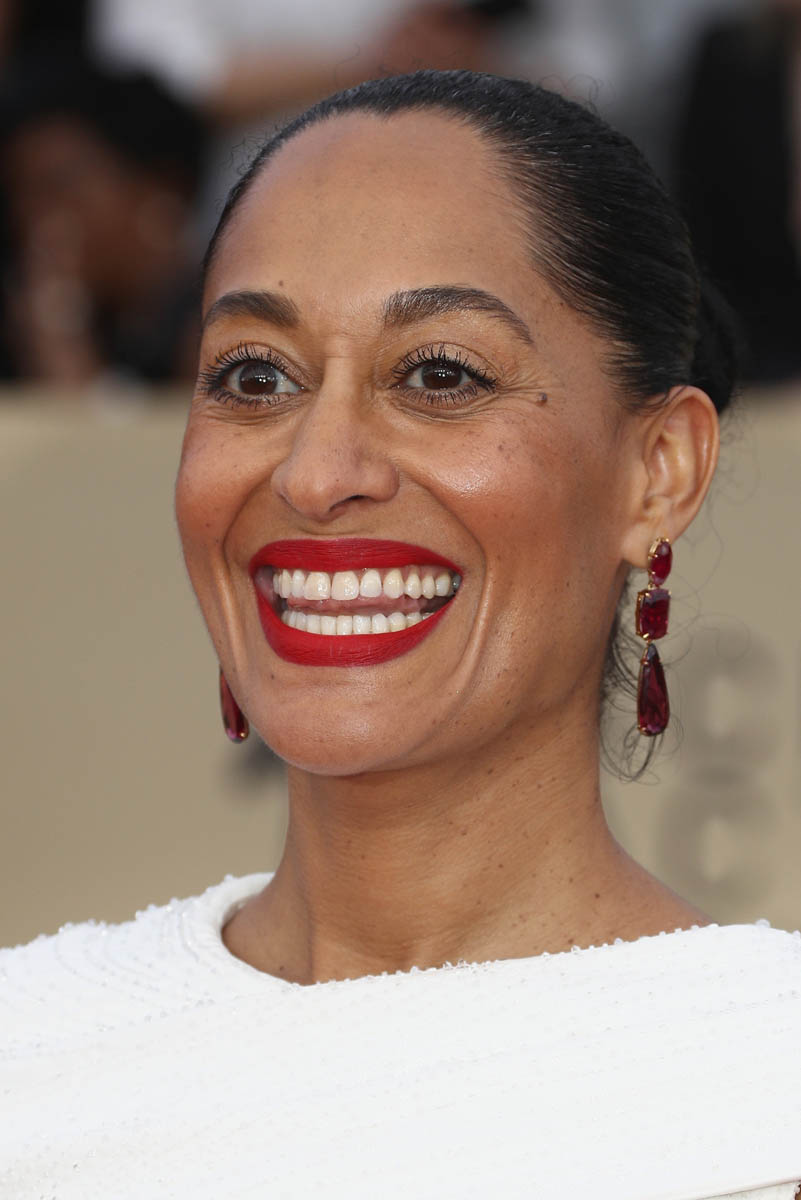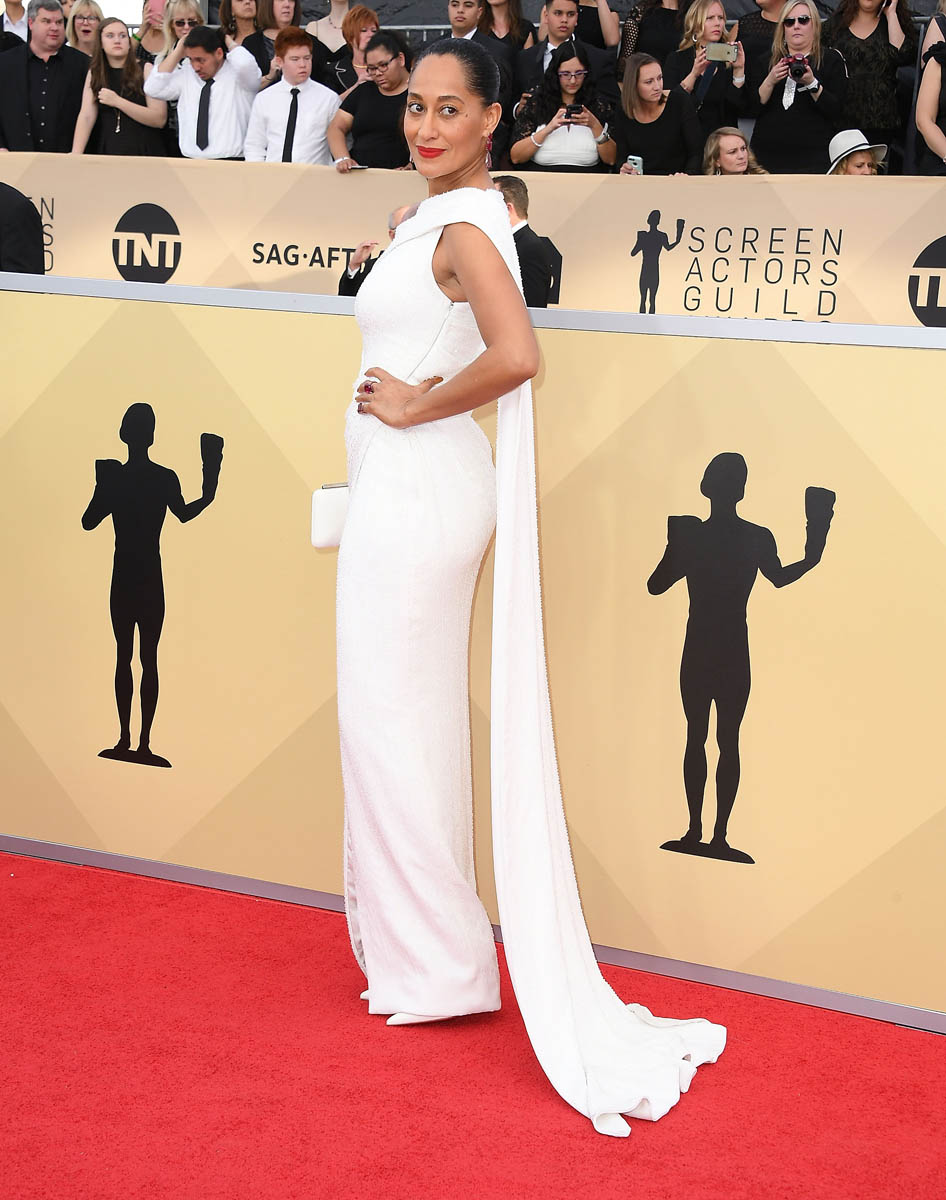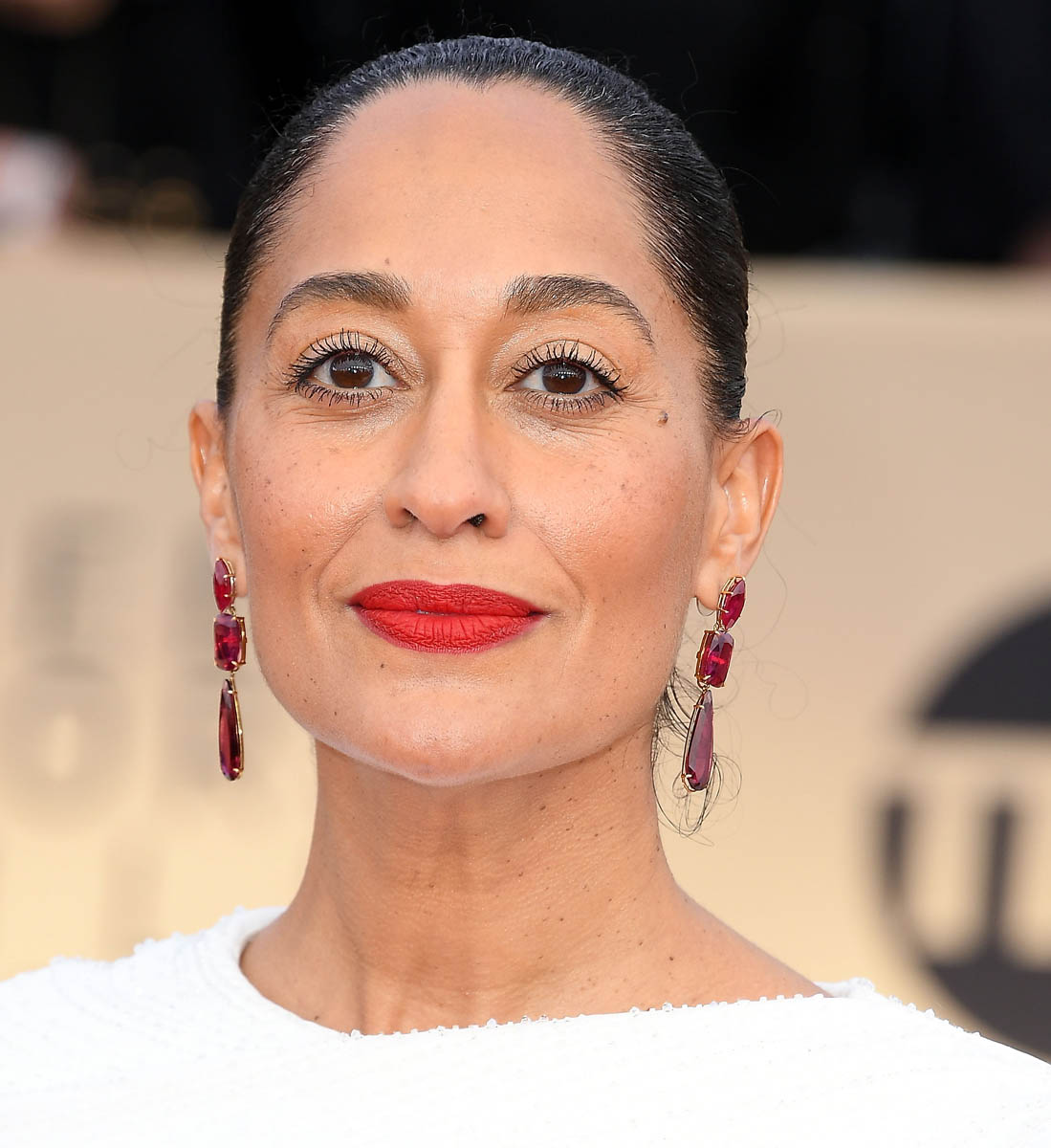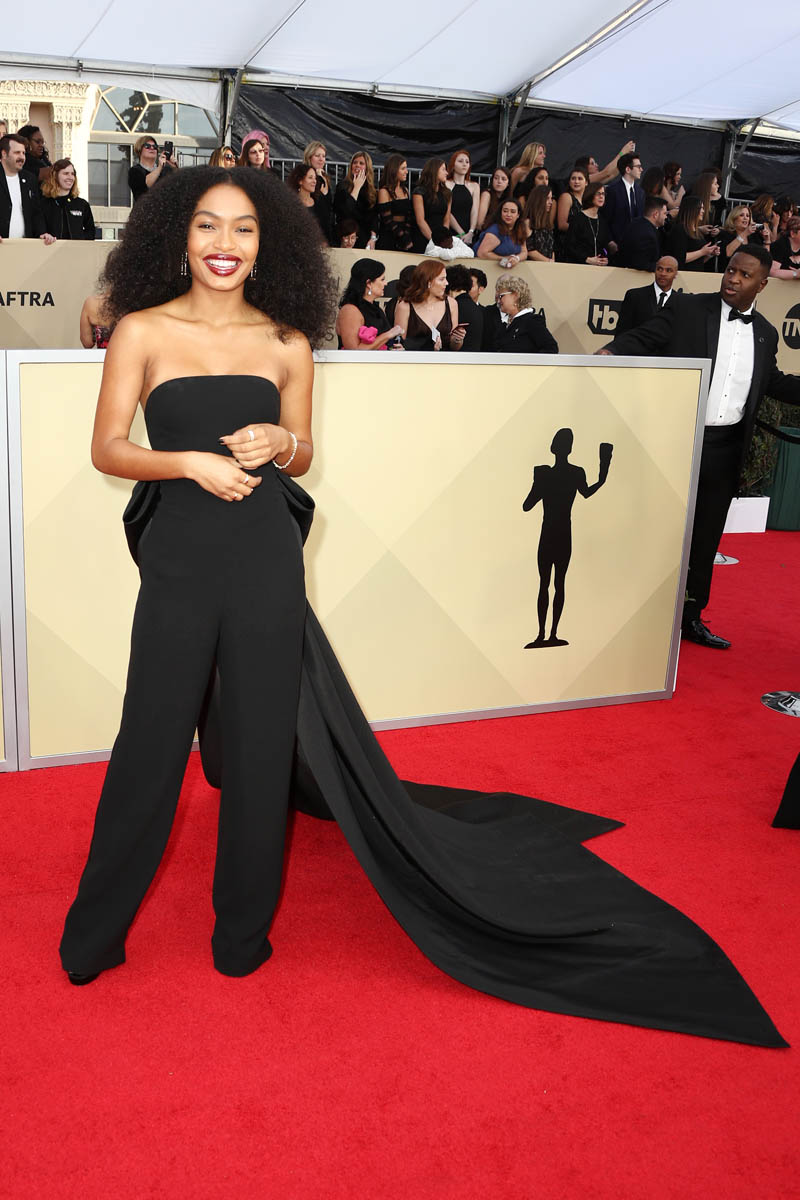Tracee Ellis Ross: on agency and shoes


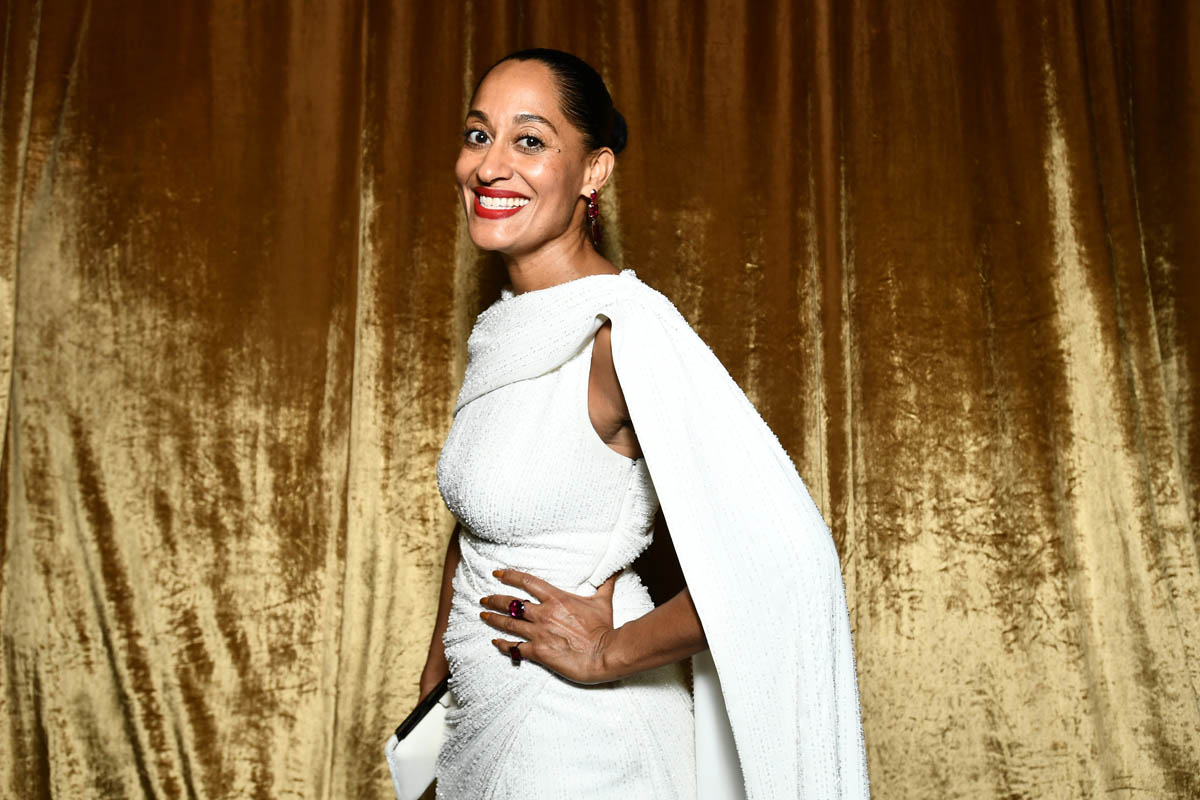
As Duana just noted, there were a LOT of sequins going on last night. Every other dress glittered. Tracee Ellis Ross glittered in a breathtaking white Ralph & Russo gown with a wrap-around cape situation that fell off one shoulder. She looked magnificent.
Tracee was there as part of the black-ish ensemble, nominated in the comedy category. She also spoke off the top of the show, that part that kicks off the SAGs every year when each presenter tells a story about their career and ends on “I’m an actor”. As you know, there’s been all kinds of conversation lately about fashion and how much to care about it and whether or not we can care about it in the time of #MeToo and Time’s Up. Of course Tracee was the one to nail it.
.@TraceeEllisRoss is an actor. #SAGAwards pic.twitter.com/KclJjxhMQF— Global TV (@GlobalTV) January 22, 2018
It can be BOTH.
And it should be both. For some more than others.
As I wrote after the Golden Globes a couple of weeks ago, there was a time, not too long ago actually, when there wasn’t a lot of diversity on these carpets. Which meant that on the longest and most high profile runways of the world, at the Globes and the Oscars, only one standard of beauty was reinforced. More and more though, the women walking in custom Chanel and Dior gowns are representing different cultures and shapes and identities. And when that gets highlighted, those images start to become messages. Like, yeah sure, Reese Witherspoon has been walking carpets now for over 20 years and, fine, maybe she’s over it. But is Laverne Cox over it? When Laverne Cox is on the carpet and the dress is wow and the hair is fire and the nails are the sh-t, I’m pretty sure she’s not over talking about it. In fact, she seems like she very much enjoys talking about it. Because here’s a trans person, the first trans woman of colour, nominated for a primetime Emmy, being celebrated for being beautiful.
In many ways then, there is privilege in being “over it”, in refusing to participate in the style conversation on the red carpet, to say nothing of the work that’s done by so many professionals behind the scenes who make red carpet moments possible. As Tracee Ellis Ross articulated for herself last night, she is entirely capable of being taken seriously while taking fashion seriously. To pretend that it doesn’t matter would suggest that she can’t be both and also negates the work of the people who make that happen.
Tracee, as mentioned last week, was the focus of the gender pay equality conversation last week because it was reported that she’s paid significantly less than Anthony Anderson on black-ish. She addressed the speculation on Twitter this weekend:
pic.twitter.com/yurPbXexb6— Tracee Ellis Ross (@TraceeEllisRoss) January 21, 2018
When I wrote about this on Friday, I pointed out that this came up at a recent Time’s Up meeting and that, collectively, the membership debated what Tracee’s renegotiation options were, that women in Hollywood were starting to come together to share sensitive information that, previously, they were discouraged from divulging with one another. It’s worth noting that this has come back to Tracee and that she used the word “threats” to describe her considerations. Because this is how it has been perceived. Women gathering in community to exchange information and pass on knowledge, to help each other push forward and for change is considered “threatening”. In today’s open I talked about “cost”. In asking for what she believes to be fair and in consulting with her female peers on how to go about making that happen, the cost to Tracee Ellis Ross has been that she’s now accused of making “threats”. That’s how the status quo has always reacted to being challenged. By telling us what to be afraid of.

